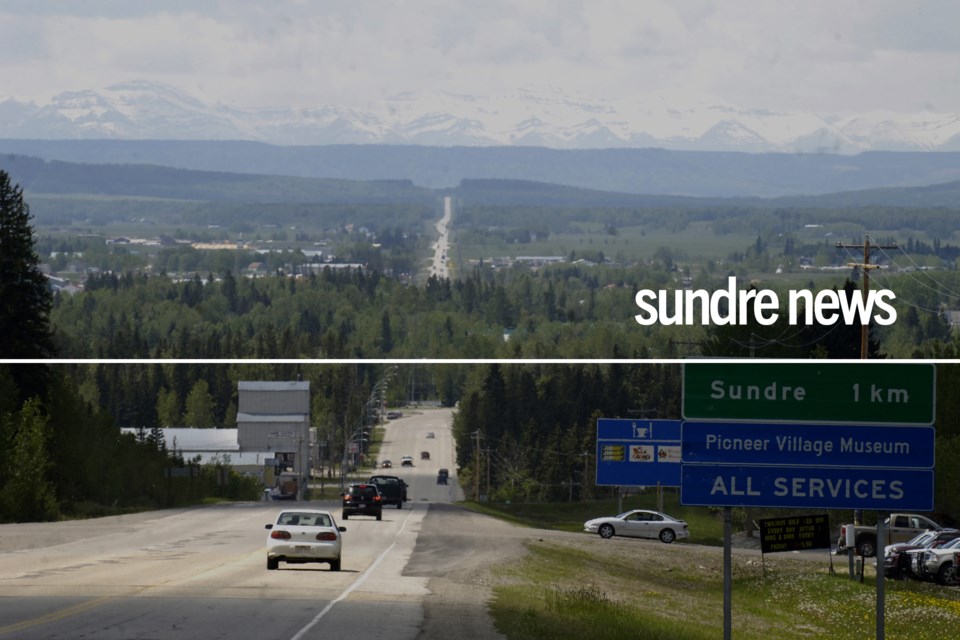SUNDRE — Down to three, full-time doctors from a panel of eight physicians just a year ago, the Moose & Squirrel Medical Clinic has nevertheless managed to maintain a level of service stability.
“It has been super busy with three docs carrying the load of eight,” Dr. Michelle Warren, who owns and operates the practice with husband and colleague Dr. Rob Warren, told The Albertan.
The five physicians previously submitted notices in the fallout of the ongoing dispute with the provincial government after Health Minister Tyler Shandro terminated the contract with the Alberta Medical Association, which led many medical professionals not only to lose trust in the government, but also to develop doubts about future prospects in Alberta.
“They had to give a lengthy notice period so we’d have time to find replacements or other health-care professionals to come in and stabilize the clinic, so the patients that rely on it for care aren’t going to be left high and dry,” said Warren, who will later this September be stepping into her role as the association’s 2021-22 president. She is currently serving a term as the 2020-21 president-elect.
“We were able to do that,” she said.
Helping to alleviate the workload left in the absence of their former practitioners to ensure the continued provision of care for for the clinic’s patient base have been several locum doctors and resident student graduates, she said.
“We have new physicians that are joining us this month,” she added.
That includes two new graduates on a temporary basis, one of whom agreed to three months and another for six months, to determine whether the community and the clinic is a fit for them, she said.
Warren attributed part of the success in finding new doctors to a new funding model being introduced to the clinic in August. The Moose & Squirrel will be only the second rural clinic in Alberta to use the new formula, and the fifth throughout the province, she said.
“The funding model has finally caught up with how we provide care in our clinic. It very much promotes that team-based care,” she said.
However, the new physicians are not yet permanent replacements.
“They haven’t signed on the dotted line,” said Warren.
The three remaining full-time physicians at Moose & Squirrel are the Warrens and Dr. Jena Smith.
Uncertainty still looms
“What I’m hearing right now when I talk to people, is nobody is sure what’s happening in Alberta and they don’t want to commit,” said Warren.
Locum physicians are much more flexible in their ability to practise, and maintain the option to be mobile with the benefit of being able to “test drive” a community before making long-term plans, she said.
“Those that are not sure about the way things are heading in Alberta, but aren’t willing to leave Alberta outright, are settling into locum positions,” she said.
The reluctance of new medical graduates to establish a practice or sign on full-time with an existing one stems from far more than the government’s lack of tact in its approach to health care.
“I think it’s even bigger than that. It’s everything that’s happened in this past year,” said Warren, citing an array of issues from concerns about education to coal mining, the environment and of course health care.
Lost generation
Alberta will more likely than not never recover the physicians who have decided to pull up stakes and find greener pastures elsewhere in Canada, she said.
“When the docs left Sundre, they didn’t leave our clinic. They left the province. So, they’re now living and working in other provincial areas, because they couldn’t see themselves living in Alberta anymore,” she said.
“We’re not going to get our five doctors back, who left Alberta — they’re gone. That’s an entire generation of physicians who would have replaced those of us who are older.”
And until the dust settles and physicians feel more comfortable and confident about the prospect of setting roots in Alberta and raising their families here, they won’t be prepared to commit, she said.
It took years to rebuild Alberta’s medical sector after the former Ralph Klein government induced brain drain, and it will take years more to rebuild once again, said Warren, adding she feels as though much of the progress made since then has been brought back to square one.
Glimmer of hope
Yet despite the situation and the provincial government’s decisions that ultimately created this situation, Warren reserves an element of optimism.
“I think there is a real interest from the government to work with the AMA now, which wasn’t there this time last year,” she said.
The association’s 2020-21 president, Dr. Paul Boucher, as well as Alberta Health, recently issued statements outlining some of the steps forward that have been taken on key issues for physicians since late March when the AMA membership voted 53 per cent no against a tentative agreement.
Boucher outlined highlights including continued engagement with membership as well as a revision to the 2021-22 continuing medical education program, stepping back from imposing restrictions on new billing numbers that were supposed to begin in April, and a sign-off of numerous physician support grant programs for 2021-22.
“That, to me, shows good will,” said Warren.
However, as grateful as she is that progress might yet be made toward a new agreement, the physician said provincial leaders should not be told what they want to hear, but what they need to hear.
“If they’re pulling a bonehead move, we have to tell them.”



